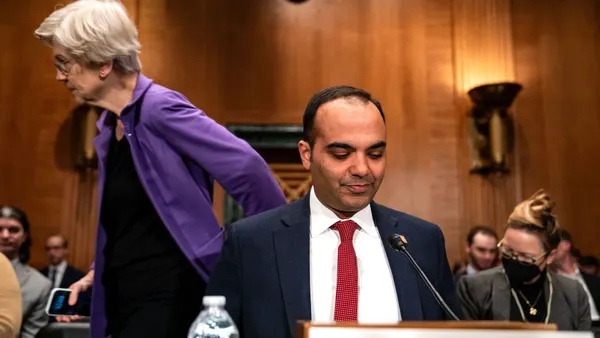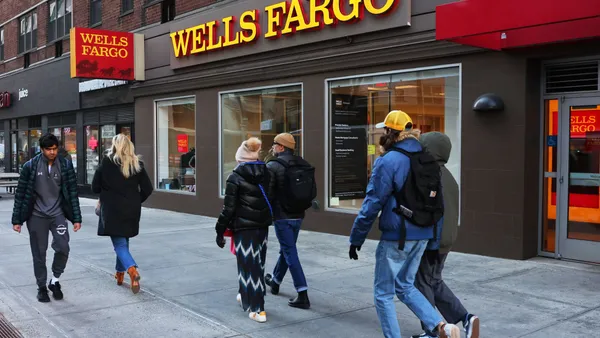A federal appeals court on Monday restored a district judge’s temporary injunction barring the Consumer Financial Protection Bureau from proceeding with any mass firings.
Specifically, the U.S. Court of Appeals for the District of Columbia Circuit walked back its stay that allowed agency leaders to terminate employees who had been “determined, after an individualized assessment, to be unnecessary to the performance of [the] defendants’ statutory duties.”
Less than a week after the appeals court issued its April 11 partial stay, the CFPB rolled out a reduction in force encompassing roughly 90% of the bureau – a move the district judge again halted before it could take effect.
“Given these ongoing disputes, we think it best to restore the interim protection of … the preliminary injunction, which ensures that plaintiffs can receive meaningful final relief should the defendants not prevail in this appeal, rather than continue collateral litigation over the meaning and reviewability of the 'particularized assessment' requirement imposed by this court's stay order," the three-judge appeals panel wrote Monday.
Monday’s order is set to stay in effect until the appeals court hears oral arguments challenging the injunction May 16.
Not all of the appeals judges agreed, however.
Judge Neomi Rao, a Trump appointee, argued the district court “overstepped our stay.” But “rather than remedy the judicial error,” Monday’s appeals court order “hamstrings” the CFPB and leaves a “lack of judicially manageable standards.”
Rao advocated for the April 11 stay to remain in force, asserting the district court’s April 18 order – again halting the CFPB reduction in force – is an “abuse of discretion” that presents “serious separation-of-powers concerns.”
Rao cited CFPB Chief Legal Officer Mark Paoletta’s declaration that a particularized assessment, in fact, had been done. Paoletta “further clarified that the employees subject to the RIF would remain employed for sixty days, and that the agency’s leadership would ‘continuously assess the Bureau’s workforce needs’ and ‘make appropriate changes to ensure compliance with statutory duties.’”
Plaintiffs had argued to the district court, though, that employees affected by the RIF would have lost their access to the CFPB’s systems one day into that 60-day window, making the continuous-assessment argument moot.
Rao, however, castigated the plaintiffs for going to the district court.
“Rather than wait to see if any harm materialized, the plaintiffs … demand[ed] immediate judicial intervention because it was ‘unfathomable’ that the CFPB could continue to provide statutorily required services if the RIF were executed,” Rao wrote Monday.
The appeals panel, in its Monday order, however, noted that the 1,483-employee RIF that plaintiffs sought to stop in April “exceeds” the scope of the initial 1,175-person downsizing the CFPB attempted in February.












